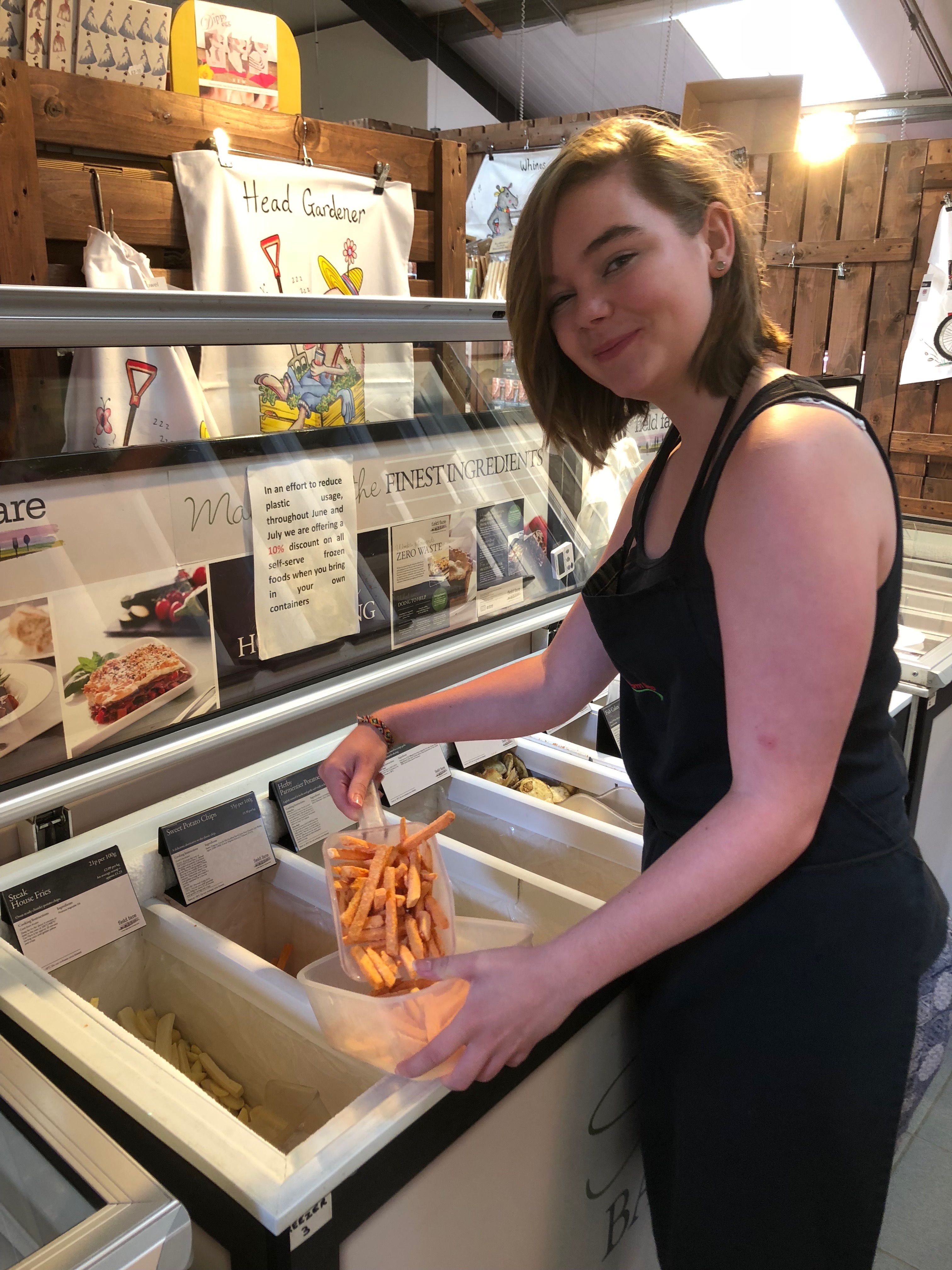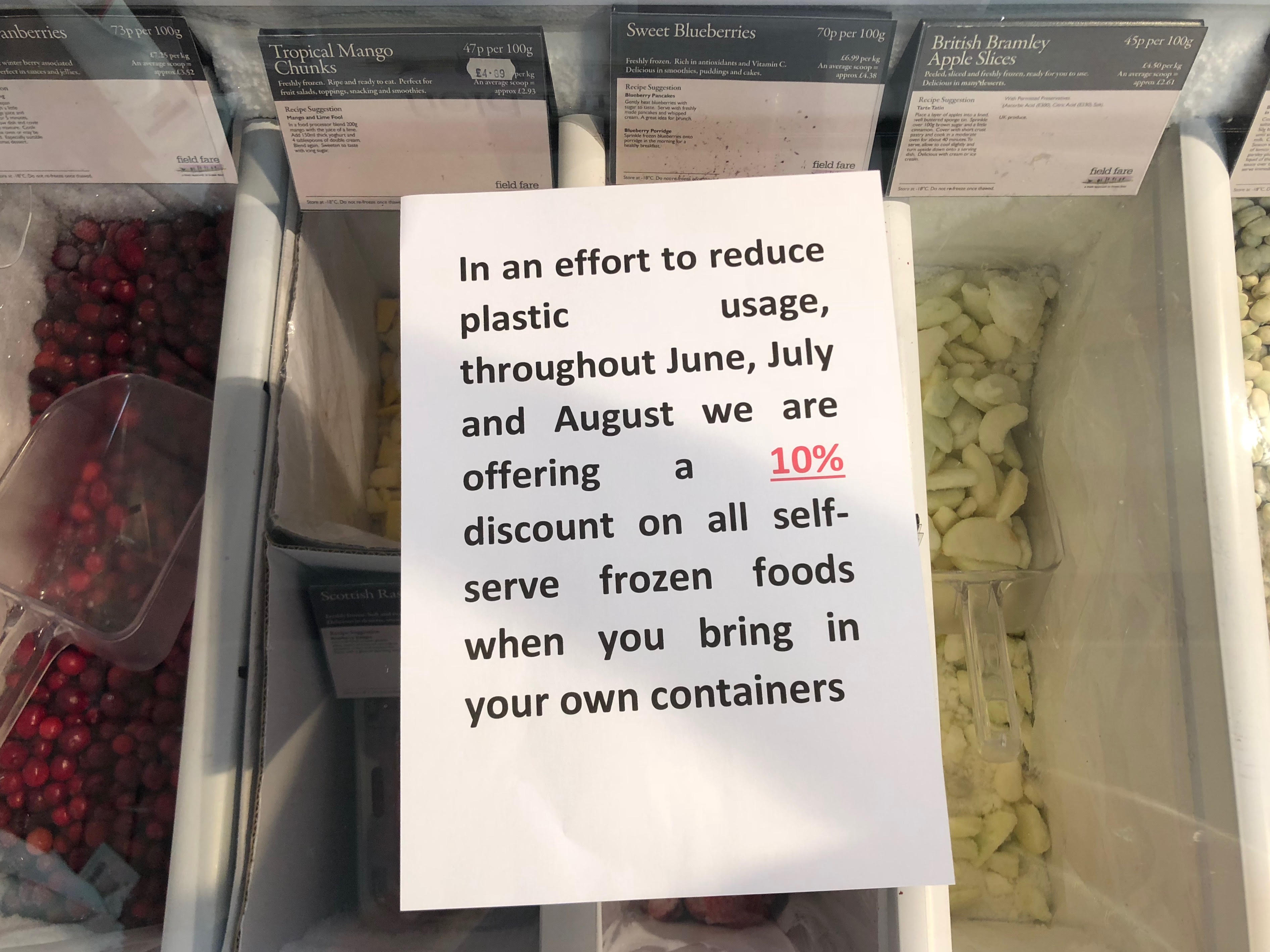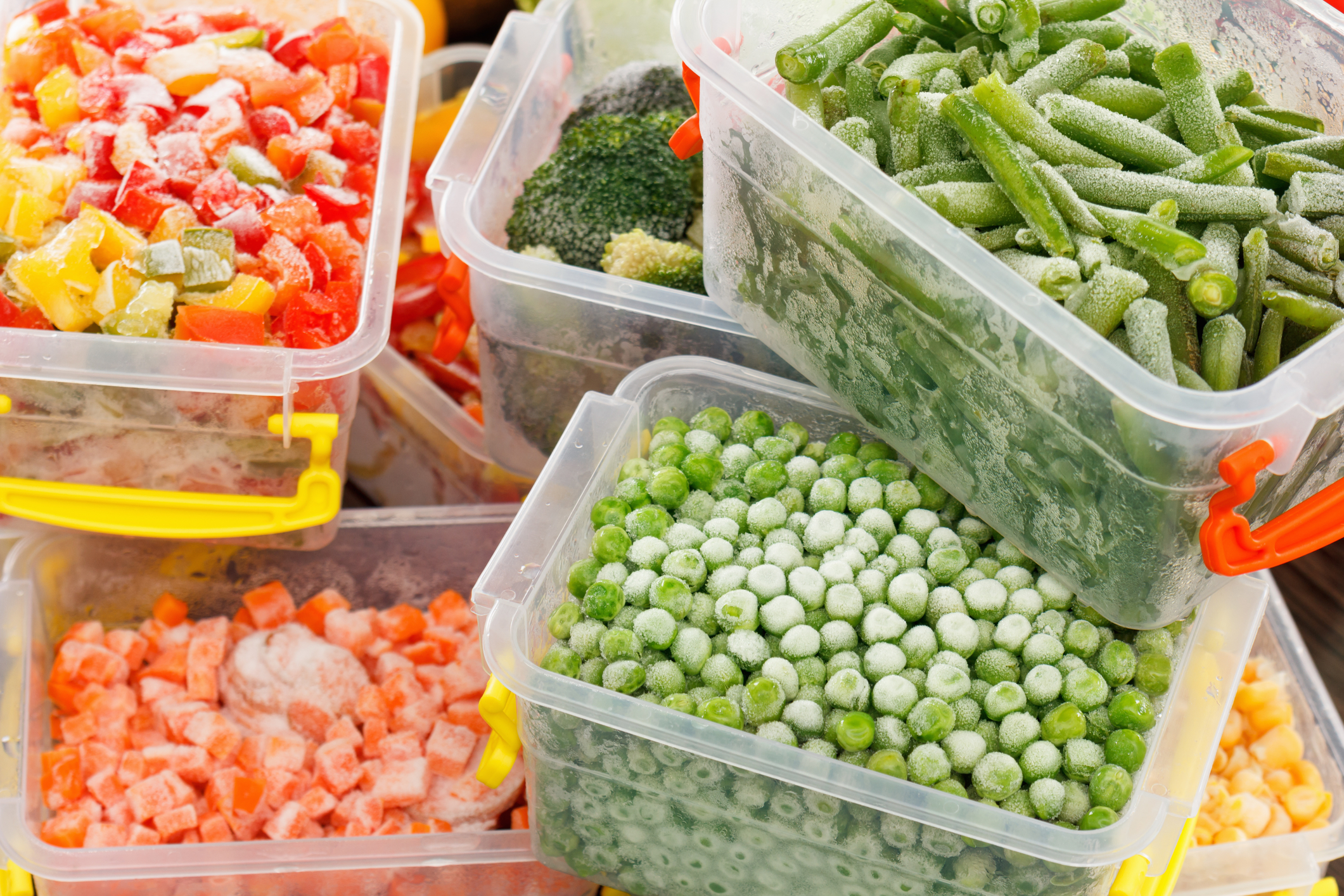Chiming perfectly with the increasing noise about plastic waste, 24th – 30th September 2018 is Recycle Week, organised by WRAP UK. Now in its 15th year, the week is focused on encouraging everyone to recycle more, particularly around the home and with a timely emphasis this year on plastics.
Customers welcome BYO campaign with open tubs …
One pioneering local business has launched a new initiative that offers an easy way to get involved, and not just for Recycle Week. Thornhill Farm Shop, in conjunction with Field Fare frozen foods, are encouraging their customers to bring their own tubs or to use re-useable containers available at the shop, for their Field Fare loose serve frozen products, which include A Grade fresh frozen fruit and veg, fish and baked goods.
David Cross, Thornhill Farm shop’s trailblazing manager, was one of the first three shops of over 400 stockists to pick up on the premium brand’s nationwide campaign, encouraging their stockists to take the BYO next step.
“We work hard to be progressive at Thornhill Farm Shop,” he explains, “and are environmentally conscious wherever we can be. Our customers are responding equally enthusiastically to the opportunity to do their bit for reducing plastic waste and the response on our facebook page has been great – with a lot of people vociferously supporting the initiative – but we are keen to encourage still more and Recycle Week is the perfect opportunity to give it a go.”
You heard the man. So how does it work? “It couldn’t be simpler,” says Cross, “Field Fare’s frozen vegetable, fruit, fish and baked goods range are loose serve, so customers take their empty containers to the till before they fill them and tell us what is going in the container, we weigh it and calculate the price to knock off for the container and give them a ticket with the value to deduct on it. They scoop as much as they want into their own container and we then deduct it from their bill when they come back to the till. A very simple way to make a big difference.”
Frozen fights global warming …
And it’s not just plastic waste that is reduced here. Frozen goods already come laden with eco-credentials. Freezing is nature’s preservative, for one. It reduces packaging, meaning more compact transportation which reduces food miles. While year round seasonality cuts down air miles and the lengthened shelf life and precise scoop-your-own volumes reduce food waste; so it’s already an environmentally sound shopping decision. In fact, a 2018 research study across 20 families by Manchester’s Metropolitan University showed a week of eating frozen to reduce waste by 47.48% at a cost saving of £37.62.
Five mill
“We are so pleased to see the food waste and packaging debate forcefully taking centre stage,” says Field Fare MD, Karen Deans of a campaign that she hopes more of their 400 stockists will take up. “For 40 years, it has been an important aspect of the Field Fare model and we are committed to continuing to improve on and play our part in reducing both. Shockingly, a fifth of household waste is packaging – that’s five million tonnes of packaging in the UK every year – so it is great news that visionary retailers, like Nick Shearer, are starting to rally.”
Without doubt, not reusing our plastics will become increasingly socially unacceptable, from take-out coffee cups to pointless packaging. Thornhills are offering a simple way to start making those critical changes.




